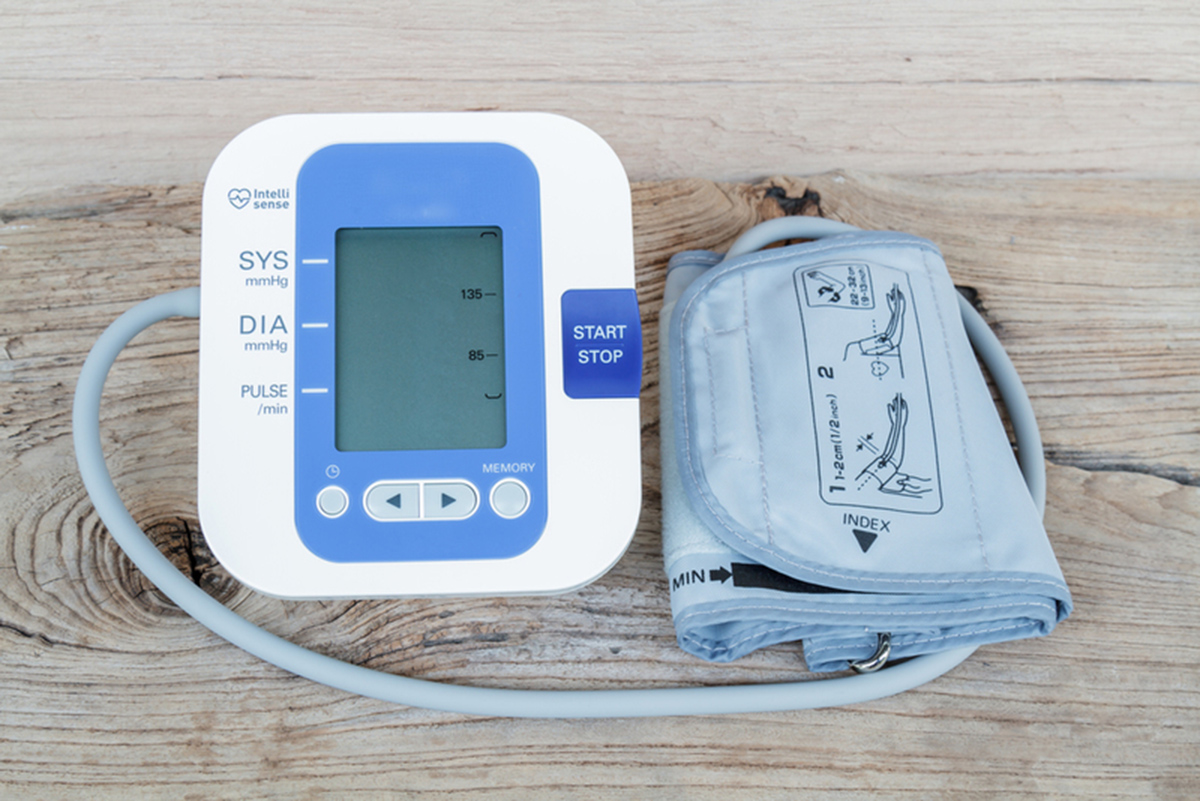One important thing to know about hypertension is that it’s divided into two categories: essential and secondary. Secondary hypertension is when the causes of the high blood pressure can be traced to another condition. These conditions are varied, from those that affect your heart to those that affect the kidneys.

Causes of secondary hypertension: Hormone problems
There are a number of hormone-related problems that could lead to hypertension, such as:
- Aldosteronism is a condition that describes an adrenal gland tumor. When one or both of the body’s adrenal glands have an abnormally high number of cells, aldosterone levels begin to rise above the normal level. As a consequence, the kidneys begin to retain salt and water, and the resulting loss of potassium causes the blood pressure to rise.
- When the thyroid gland fails to secrete a sufficient amount of thyroid hormone, the result is also a significant blood pressure increase.
- Corticosteroid medications prescribed for conditions such as Cushing syndrome could also be a potential cause of hypertension.
- Pheochromocytoma is a rare tumor that affects the adrenal gland. This tumor causes the gland to secrete a larger amount of adrenaline, leading to irregularities in blood pressure.
Causes of secondary hypertension: Kidney diseases
Secondary hypertension can also be caused by a series of kidney-related diseases, of which the most common ones include:
- Diabetes is a medical condition that causes the kidneys to fail in their filtering role, and high blood pressure is a consequence of that.
- Glomeruli are filters that your kidney uses to process sodium and waste. When these filters become swollen, a person ends up having glomerular disease, thus leading to hypertension.
- Renovascular hypertension is marked by a narrowing of the arteries that supply blood to the kidneys. This condition is very dangerous, as it can cause permanent kidney damage.
- When your kidneys form cysts that prevent them from working normally, this means you suffer from polycystic kidney disease, which also causes blood pressure to rise.
Other causes of secondary hypertension
Sadly, the causes that could lead to hypertension aren’t limited to the kidneys and hormones secreted by different glands. There is a series of other potential causes worth mentioning:
- Sometimes, medication can lead to secondary hypertension. Different supplements and prescription meds are known for elevating blood pressure, especially drugs used after organ transplants, birth control pills, or painkillers.
- Illegal drugs that cause the heart to beat very fast are also known for causing secondary hypertension. The most common ones are amphetamines and cocaine.
- Obesity has always been linked to hypertension in general, mainly because fatty food can increase blood flow, which puts an extra amount of strain on the artery walls.
- Sleep apnea (and other sleep disorders) is known for causing secondary hypertension as well. Sleep apnea is typically accompanied by a series of symptoms, such as intense snoring, difficulty in breathing or irregular breathing patterns. When the blood vessels don’t receive the required amount of oxygen, the nervous system becomes overactive. The chemicals then secreted cause blood pressure to rise.
Diagnosis of secondary hypertension
In some cases, doctors will require a more thorough examination to discover more information on what’s causing said hypertension, such as a blood test, a urine test, a kidney ultrasound, or even an ECG (electrocardiogram). Aside from the blood test, none of these exams are invasive or painful.
Treatment and prevention of secondary hypertension
To treat secondary hypertension, the doctor must make a plan that treats the initial condition that caused the elevated blood pressure. Once the main condition has been treated, only then may secondary hypertension return to normal.
Depending on the main health problem, doctors may prescribe treatments that include:
- Beta blockers, which can help reduce heart workload and cause the blood vessels to open. As a result, the heart beats slower, at a normal rate.
- Thiazide diuretics are often prescribed to help the kidneys eliminate water and sodium, thus reducing blood volume. They are the least expensive options out of all possible blood pressure meds, and are often the go-to solution for most doctors.
- Calcium channel blockers are meds that help the blood vessel muscles relax, and may also slow down the heart’s rate.
- ACE (Angiotensin-converting enzyme) inhibitors are also prescribed to relax blood vessels, as their main role is to inhibit the formation of chemicals which lead to narrow blood vessels. Doctors often prescribe these for people that have coronary artery disease, kidney or heart failure.
Naturally, the solution to every medical problem related to hypertension needs to be accompanied by a change in lifestyle. Regardless of the type of hypertension you are dealing with, there are a series of actions you can take to both improve and prevent high blood pressure:
- Watching your diet is important. This includes eating healthier food, especially vegetables, fruits, and dairy products that are low in fat. Increasing your intake of potassium helps control blood pressure as well. On another note, cut down on your salt intake. Lower levels of sodium are especially important if you suffer from any kidney problems.
- If you have a problem with extra pounds, losing a few of them can help improve blood pressure significantly.
- Stress management is underrated, but very important. When the body and mind are under a lot of stress, it’s natural for blood flow to increase, which in turn leads to hypertension.
- Exercising more also helps, especially if you live a sedentary life. Just 30 minutes of daily walks can lower the blood pressure, as well as keep your weight under control.
Conclusion
To better understand how secondary hypertension is treated, one must first be able to make the difference between essential and secondary high blood pressure. The former typically has unknown causes, and might be a bit difficult to keep under control, but the latter is tied to a very specific medical condition.


Your thoughts on this